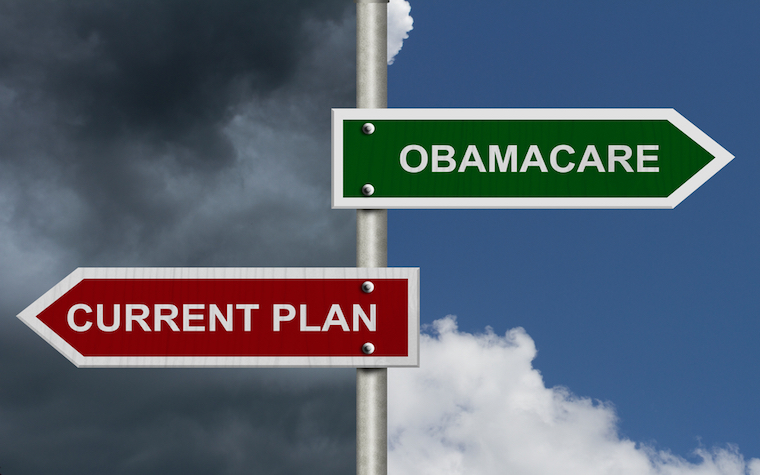
Obamacare has experienced countless hiccups since it was passed into law in 2010, from the highly anticipated, yet turbulent, launch of Healthcare.gov to the various problems states like Oregon, Hawaii and Vermont faced in constructing Obamacare exchanges.
Now, months before Obamacare subsidies are set to expire -- increasing premiums and deductibles for enrollees -- the nation’s largest health insurance provider has decided it can no longer afford to support Obamacare plans.
Rep. Dave Brat (R-VA) recently told Patient Daily that the ever-rising fees associated with Obamacare are just symptoms of a deeper issue.
“It is not even really about one set of fees increases here or there: it is about the overall architecture of the thing which is just a disaster,” Brat said. “And the problem with it is it just violates the simple laws of economics of supply and demand.”
Brat said people are confused because they no longer know what they are buying, so they don’t know what price to pay. And instead of being given a choice in what price to pay, people are simply being given a price.
“When you distort the market severely, you get all sorts of adverse outcomes,” Brat said. “That is what is going on here. In a nutshell, that is the logic driving everything and there is more to come. It cannot work. In the short run you may be able to game it and go with a little politics, but in the long run it cannot work.”
Brat’s comments come on the heels of UnitedHealth Group’s announcement last month that it will exit the majority of its health care exchanges in 34 states and only remain in a handful of states in 2017. More than 12 state regulators have confirmed the insurer’s pending departure from their exchanges.
Overall, UnitedHealth Group has been performing well and had a profitable first quarter. When it comes to its business on the exchanges, however, the insurer announced last week that it had increased its Obamacare loss projections to $650 million in 2016 -- higher than the previous projection of $525 million -- after reporting a $475 million loss in 2015.
UnitedHealth Group isn’t alone in its Obamacare-related woes. Other insurers have been sounding the alarm for the past few years, as well.
Last month, the Blue Cross Blue Shield Association released a report stating that new Obamacare enrollees had 22 percent higher medical costs than enrollees covered by employer-based health insurance plans. And a McKinsey & Company report found that in 2014, insurers lost money in 41 states and only made a profit in nine states in the individual market, which includes the Obamacare marketplaces.
The problem insurers like UnitedHealth Group face is that under Obamacare, enrollees cannot be denied medical coverage based on preexisting conditions, which led to many less healthy enrollees signing up for coverage. This was one of the reasons Obamacare was passed -- to provide coverage for people who otherwise could not get insurance.
But more sick people signed up than were expected, and insurers were forced to raise their premiums to cover the medical costs of the sick, which drives away the young, healthy enrollees whom insurers rely on.
More bad news will come for insurers and enrollees when Obamacare subsidies expire at the end of the year, which will prompt insurers to either drop out of the exchanges or raise their premiums.